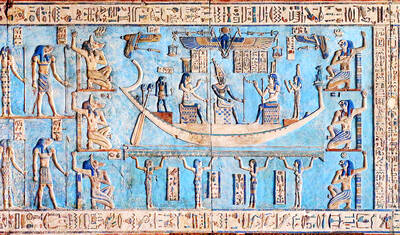For many gay people, family is the most difficult part to deal with. The Taiwan Tongzhi Hotline Association provides counselling and support for gay people and their parents. On Thursday last week, before Mother’s Day, the association held a press conference during which parents of gay children had been invited to share their experience of changing their views about having gay children and how to support them.
According to the association’s statistics, after parents discover that their children are gay, the five most common five questions are: Can my child be converted back to being straight again? Will my child get AIDS? What will happen after my child gets old? Did I do something wrong? How do I explain this to the grandparents? What will my relatives think of me? If, because of these questions and the ensuing pressure, parents start reprimanding the children, restricting their freedom of movement or controlling their friendships, the results might be just the opposite of what they try to achieve and the parent-child relationship could become more strained.
At the press conference, the association invited a mother surnamed Lin and a mother by the name of Judy, both of whom are parents of gay children, to share their personal experience. Lin said that about 10 years ago, after she discovered that her son was gay, she blamed herself and cried in agony for seven days. Then she changed her mind, “How does crying like this help him? Does crying do me any good?” She then decided to offer support to her son and made an active effort to get to know her son’s boyfriend, and even went with her son to see what a gay bar looked like.

Photo courtesy of Warner Music
照片:華納音樂
Lin said that parents also come under a lot of pressure from within themselves and from other people. As an experienced parent of a gay child, she decided to spend time with other parents of gay children, thereby helping other gay children. Judy, on the other hand, urged parents to “wait, if your heart is not strong enough yet.”
(Liberty Times, translated by Ethan Zhan)
對於許多同志而言,家庭是最難過的一關。台灣同志諮詢熱線協會提供同志父母及其子女諮詢與支持。同志熱線於上週四母親節前舉辦記者會,邀同志母親現身說法,分享如何轉念及如何支持同志孩子。
同志熱線統計,家長發現孩子是同志後,最常見的五大疑問是:「我的孩子能不能變回異性戀來?」「我的孩子會不會有愛滋?」「未來老了怎麼辦?」「是不是我做錯了什麼?」「我該如何跟爸媽或公婆交代?親戚會怎麼看我?」若因這些問題與壓力而責備孩子、管制行動、限制交友,則可能適得其反,導致親子關係更緊張。
記者會現場,同志熱線也邀請林媽媽、Judy媽媽等兩名同志母親現身說法。林媽媽說,十多年前,她發現兒子是同志之後,曾自責地在床上痛哭七日;之後轉念「這樣哭,對他有什麼幫助?對我有什麼好處?」於是決定支持兒子,並積極認識兒子的男友,甚至陪兒子去看看什麼是Gay Bar。
林媽媽說,家長其實也承受很多內外的壓力;身為過來人,她決定陪伴其他家長,也藉此幫助其他同志孩子。Judy媽媽則勉勵其他同志家長,「如果內心還不夠強大,就得等待」。
(自由時報記者何世昌/台北報導)

A: I’m glad that the Grammys will honor the late pop diva Whitney Houston with a Lifetime Achievement Award. Who are this year’s leading nominees? B: Kendrick Lamar is leading the nominations with nine nods, followed by Lady Gaga with seven nods. Bad Bunny, Sabrina Carpenter and Leon Thomas each gained six nods. A: I heard that the song “Golden” from global animated blockbuster KPop Demon Hunters received three nominations, including Song of the Year. B: Blackpink’s Rose and Bruno Mars’ “APT.” also received major recognition with multiple nominations, including Record of the Year, setting a milestone for

It graced statues, colored coffins, and decorated artifacts. It is Egyptian blue, the world’s oldest-known synthetic pigment born in ancient Egypt. Despite its name, it is not limited to a single hue. It ranges from deep blue to greenish tones, often glowing with an almost unearthly brilliance. __1__ In response, the ancient Egyptians developed a synthetic alternative. Not only was it visually striking, but it was also more affordable than imported indigo or natural lapis lazuli. Traces of the pigment have been discovered far beyond Egypt, from wall paintings in Pompeii to tiles in Mesopotamia. However, Egyptian blue began to fall

Bilingual Story is a fictionalized account. 雙語故事部分內容純屬虛構。 Just yesterday, the boy had helped hang the lucky red couplets. Tonight, as firecrackers signaled the New Year, he lay in bed burning with a surging fever. The herbalist checked the boy’s pulse and went still. “The only cure is in the county town across the mountains,” he said. “But the snow is deep, and the shops are shuttered until the Fourth Day.” The boy’s father looked at the window. “I will go.” “The roads are impassable for a cart,” the herbalist warned. “And too far for a man on foot.” The concerned neighbor

Contrary to popular belief, glass bottles may pose a greater microplastic risk than plastic ones. A recent study found that beverages stored in glass bottles can contain up to 50 times more microplastic particles than those in plastic containers. Researchers traced most of the contamination to the paint on the outside of the metal caps. The particles found in the drinks matched the cap’s coating in both color and composition. Experts suggest the issue may result from microscopic scratches that form as caps rub against each other during transport or storage. Such scratches can damage the painted coating, leading